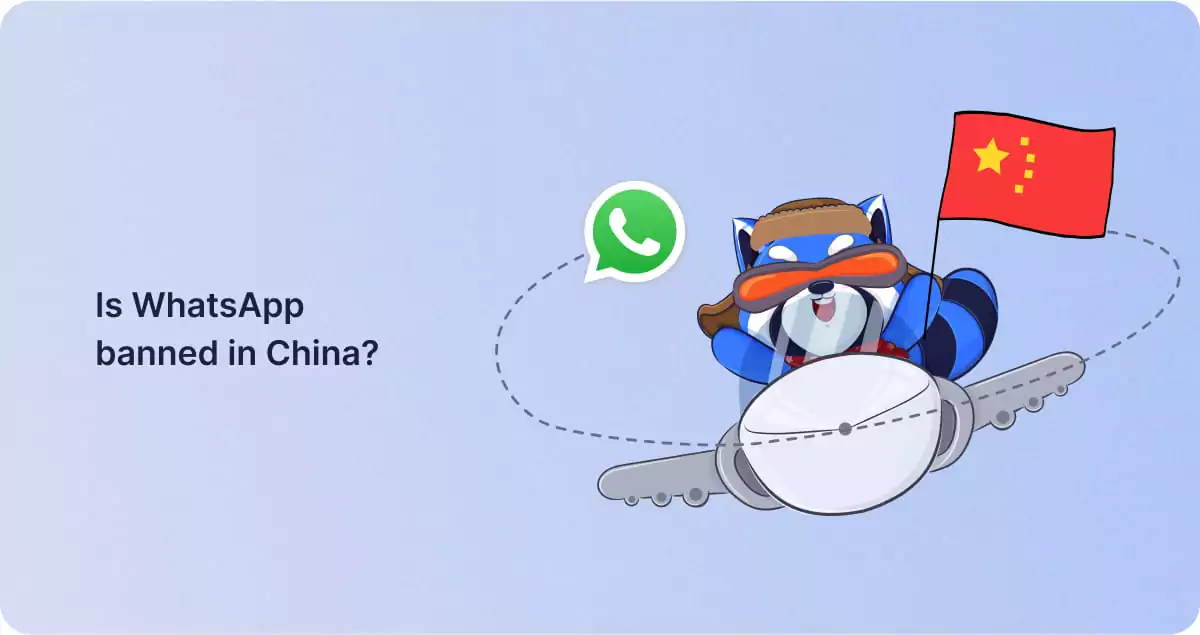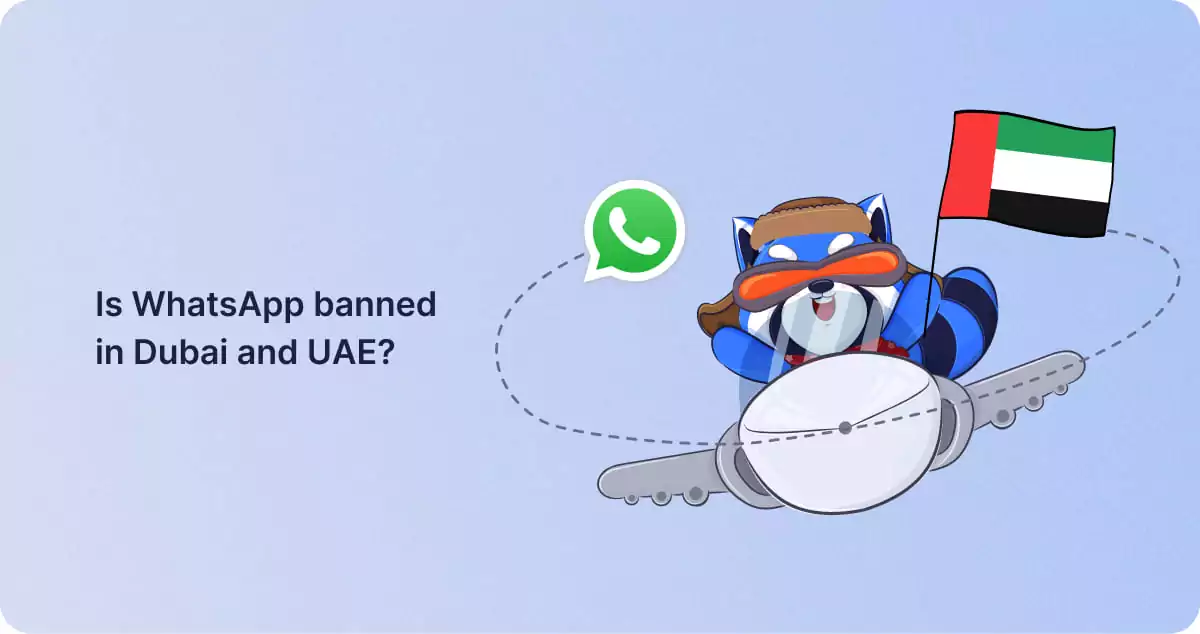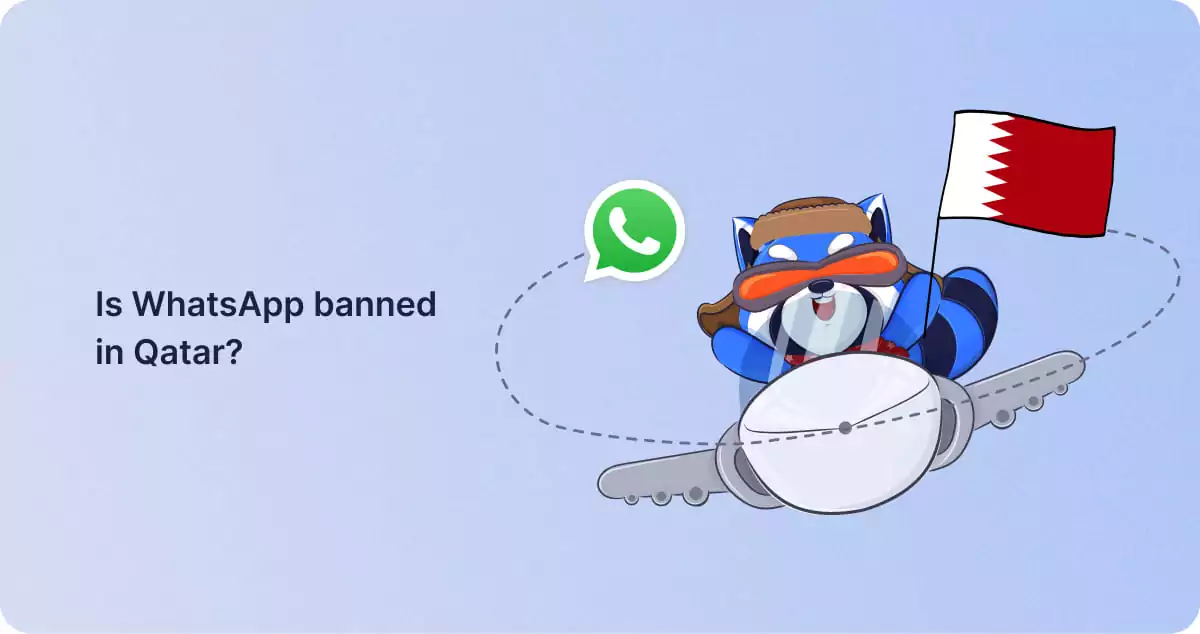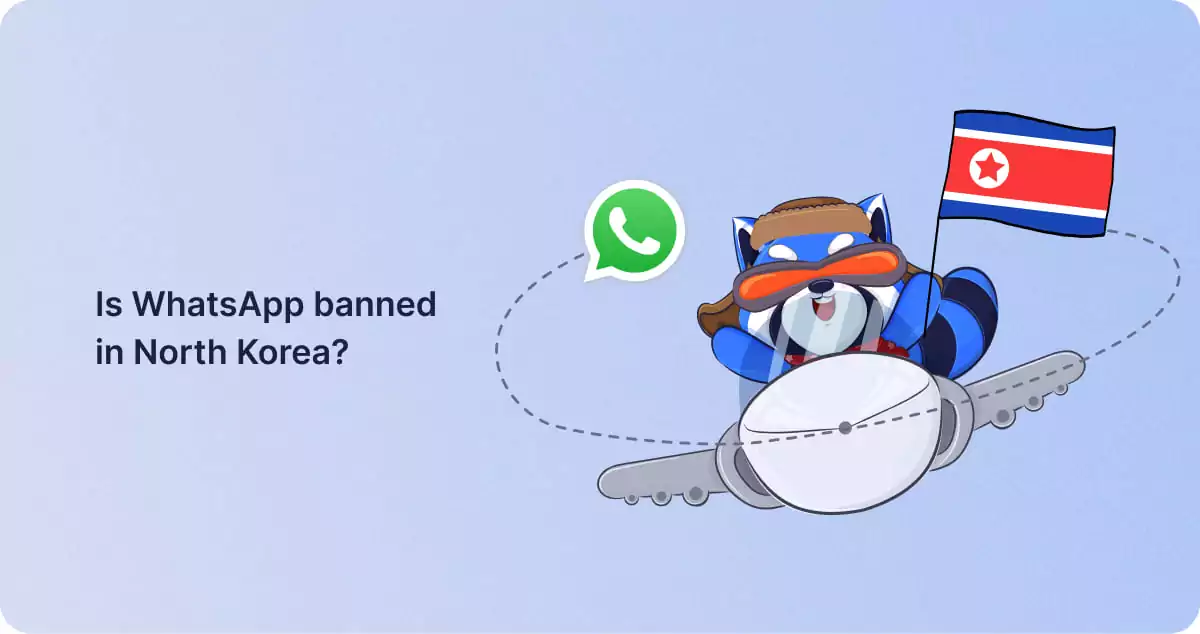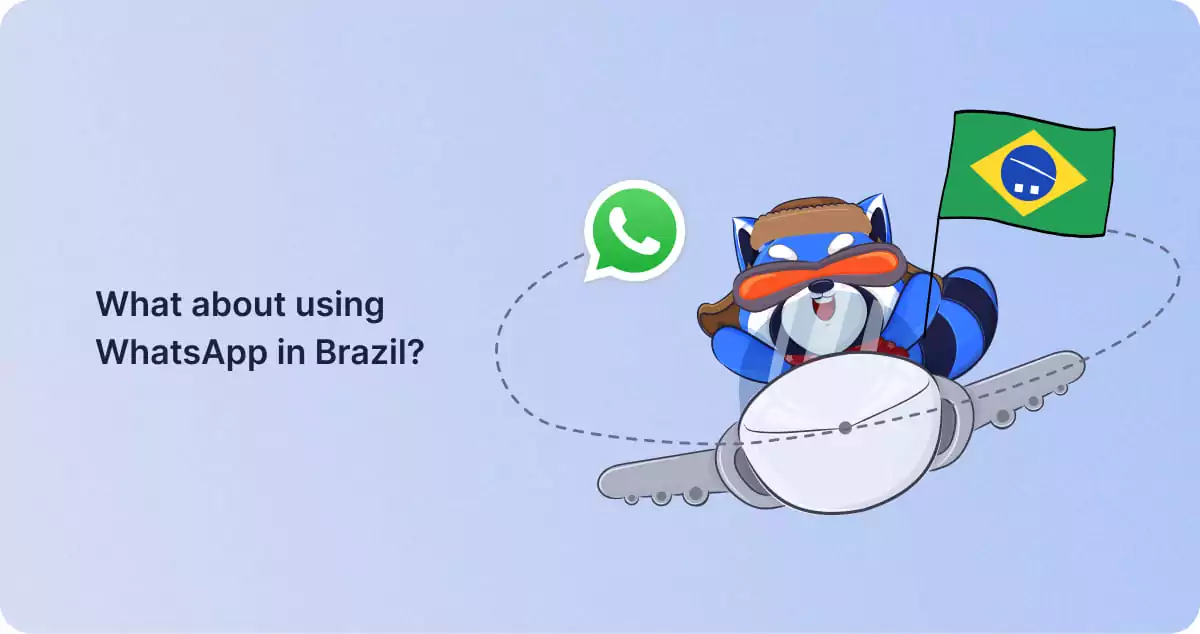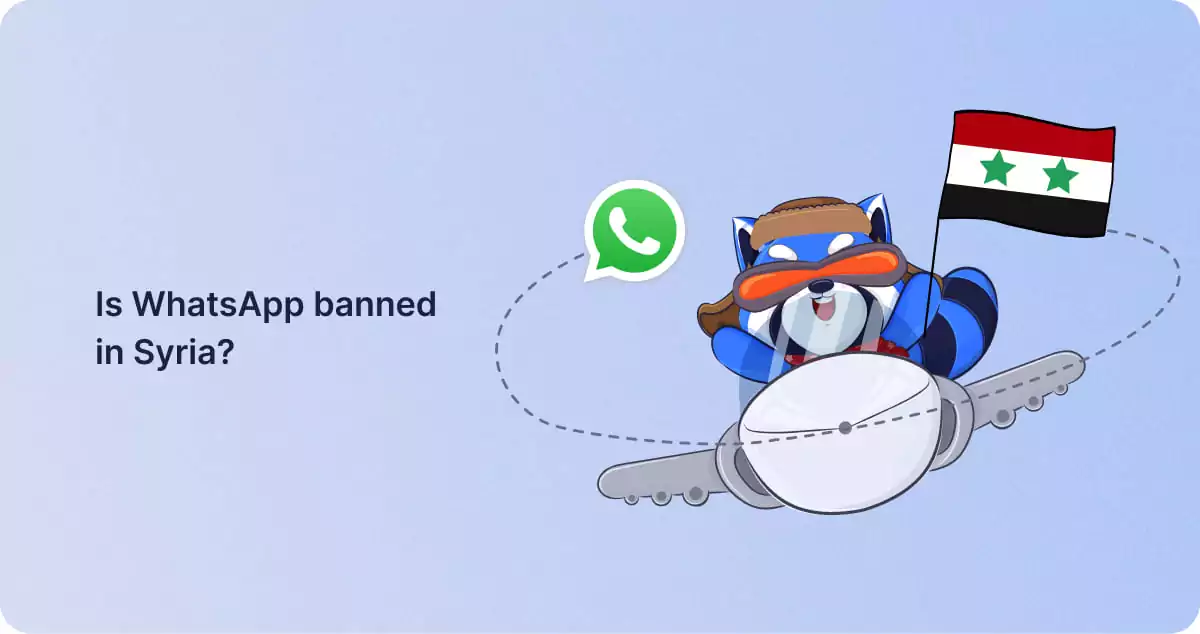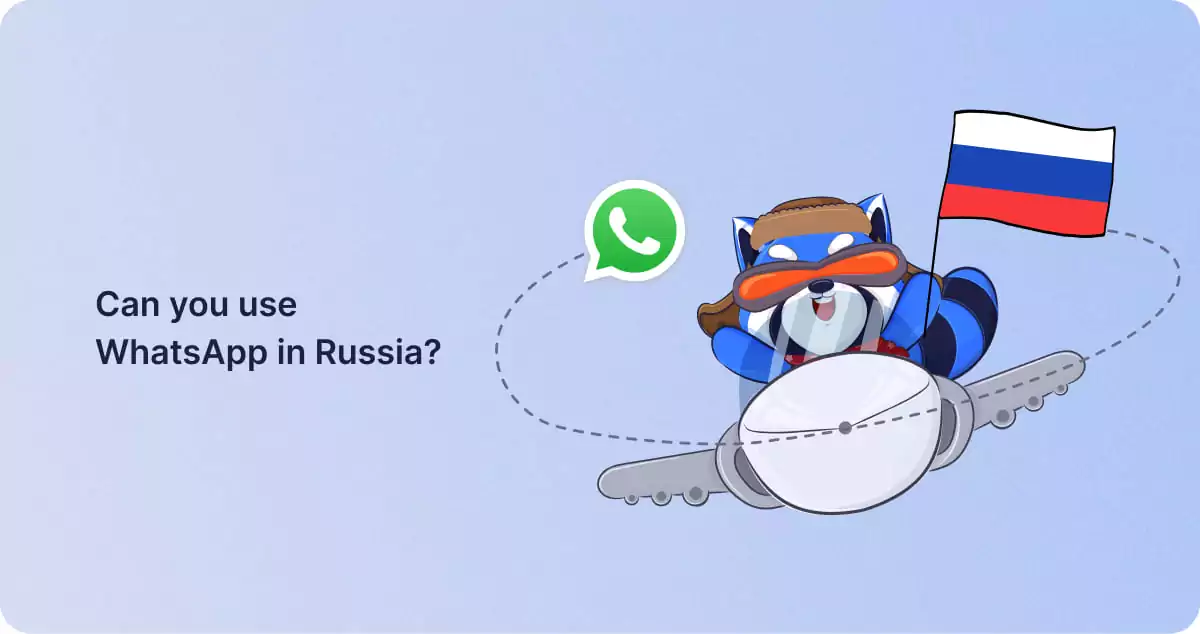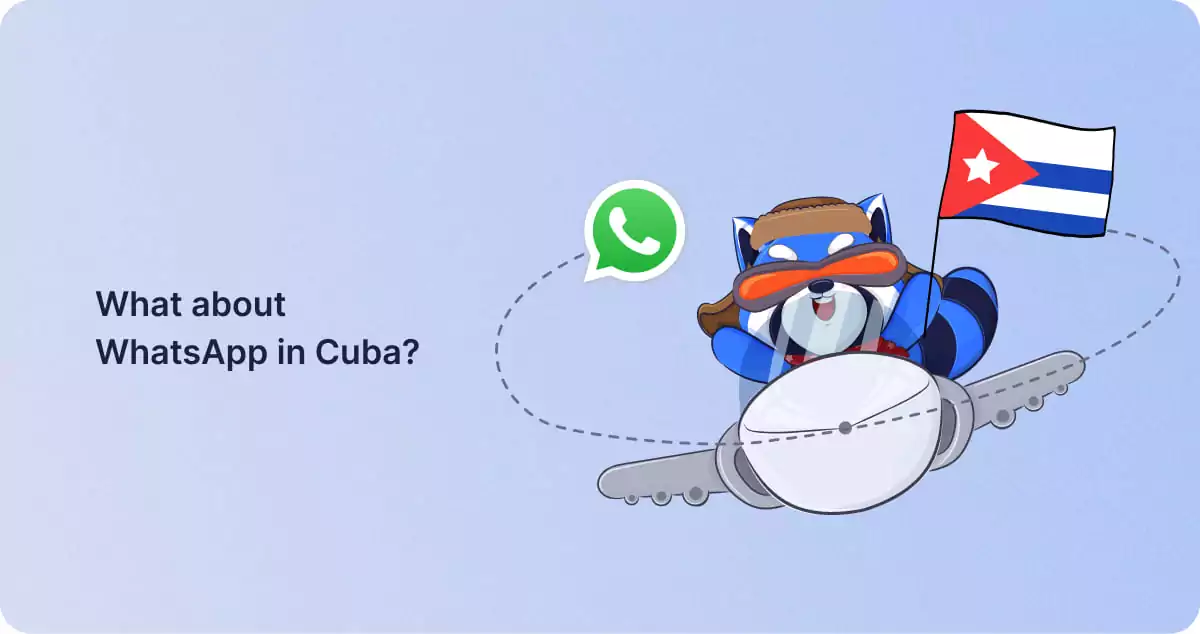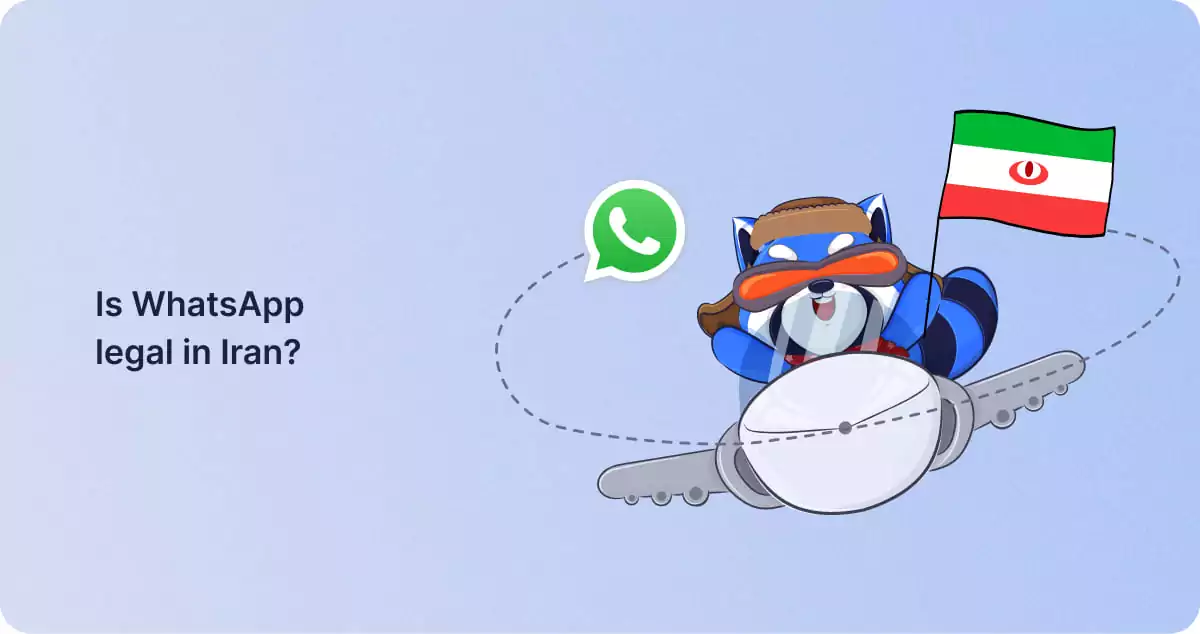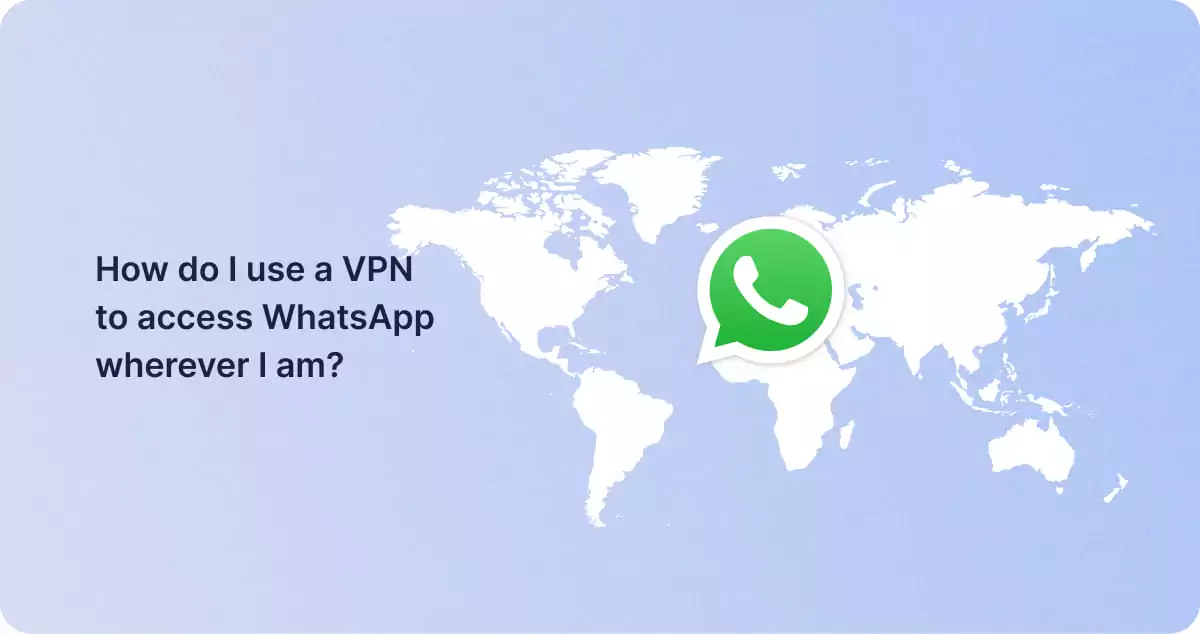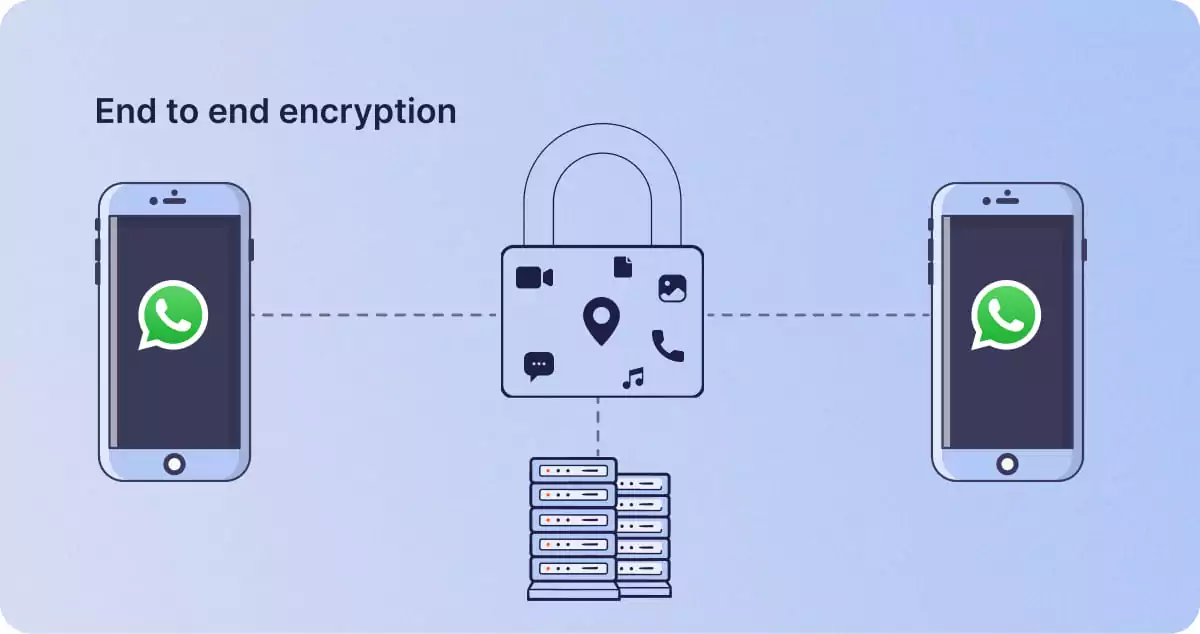Why some countries block WhatsApp and how to unblock it
1Click VPN Team in cybersecurity
07.12.2023 | 7 min read
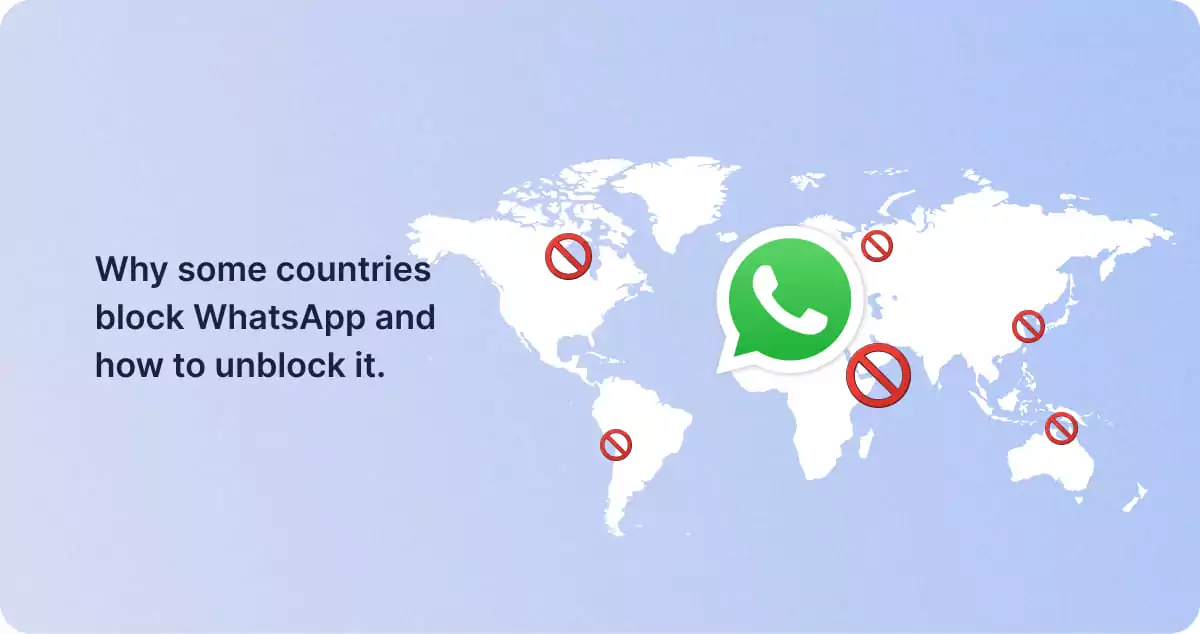
Table of contents
Why do some countries block WhatsApp?
As in so many walks of life, one of the primary reasons for governments doing anything is the motivation of money and profit. If a provider of a service is undercut by another provider of a similar service, customers are going to patronize the cheaper option. Put simply, if you can use WhatsApp to make international and even local phone and video calls for free, rather than paying a telecoms provider, that’s what you’re going to do. But many governments’ telecom providers are either nationalized or bring in large amounts of corporation tax, so if their revenues drop, so does government income.
The WhatsApp messaging platform, now owned by Facebook’s parent company Meta, is currently the most popular messaging app in the world. It boasts approximately two billion monthly active users, which surpasses its rival WeChat with 1.3 billion customers, and exceeds Facebook Messenger users, who stand at around 930 million across the planet.
Consequently, many governments have blocked or restricted WhatsApp’s use by their citizens. Many authorities state that this is for data protection concerns, but the rationale may well be financially driven.
Another reason for banning WhatsApp is that its technology includes end-to-end encryption, which means that security services, police, customs officials and other agencies cannot monitor citizens’ activities when data traffic is encrypted. Governments may be concerned about subversive terrorist activity or tax evasion. Furthermore, in those regimes which aren’t seen as democratic as others, (perhaps North Korea being one example) – the government isn’t happy to have people outside their panoptic monitoring capabilities.
Certain countries restrict WhatsApp use, some ban it altogether and others impose no restrictions at all. Let’s take a look at the states which ban WhatsApp entirely – and those that impose degrees of restrictions.
Is WhatsApp banned in China?
Yes- the Chinese authorities don’t allow their citizens, nor visitors, access to the platform under any circumstances. Since 2017, and the advent of China’s ‘Great Firewall’, external internet connections to and from China have been cut by the government. Penalties for circumventing those rules can be very serious – including imprisonment. When Meta, WhatsApp’s owner, refused to remove the end-to-end encryption facility from the app, all Meta’s products were banned at a stroke.
So it’s not recommended to attempt to use a VPN in China to access WhatsApp, as VPNs are banned there too. However, the Chinese authorities do allow the use of Skype as a VOIP carrier – probably because Skype doesn’t use end-to-end encryption.
Is WhatsApp banned in Dubai and UAE?
Again, yes, but perhaps to support the telecoms companies there. Telephony services in the UAE are known to be highly expensive. For example, a picture message sent overseas via a national carrier costs the equivalent of USD$0.50 – and an ‘out of package’ national voice call (not international) costs around $0.10 per minute. An hour’s chat with your friend across town would cost USD $6.00. Accessing WhatsApp is a civil offense and users can be fined. However, using WhatsApp to send textual messages only in the UAE is not illegal – just voice and video calls are prohibited.
Is WhatsApp banned in Qatar?
The situation in Qatar is slightly different to the UAE, in that access to WhatsApp isn’t banned but merely blocked. So if you get round the blockage using a VPN, no sanctions are imposed as no law has been broken.
Is WhatsApp banned in North Korea?
That’s Yes with a capital Y. Unsurprisingly, the N Korean government doesn’t want their citizens finding out what it’s like to live in the rest of the world, as revolution could happen overnight. If you’re caught using WhatsApp or any internet based non-sanctioned technology in N Korea, you might be imprisoned or even executed. Don’t even think about it.
Is WhatsApp banned Brazil?
The platform has faced several temporary blockages from the authorities over recent years, ranging from a few hours to several days. It’s not illegal to access WhatsApp in Brazil but sometimes the service is blocked by government telecoms restrictions. Using a VPN can avoid those restrictions easily. The bans are usually imposed during times of national unrest or when political debate regarding online privacy heats up.
What about Syria?
Yes, internet censorship in Syria is widespread as the country is war-torn between different factions. The authorities will arrest people using VPNs and WhatsApp.
Can you use WhatsApp in Russia?
Again, the situation in Russia has evolved recently. According to news reports in September 2023 by AgenciaNova, the Russian Federal Council may decide to ban WhatsApp after the enhancement of the instant messaging application into a means of mass communication.
Once the platform introduced ‘broadcast channels’, whereby people can subscribe to receive updates or news, the Russian government apparently became concerned that the platform could be used to spread disinformation. Currently, the situation is still unclear.
Is WhatsApp blocked in Cuba?
Whilst WhatsApp isn’t banned in Cuba, tourists’ regular phone numbers don’t function there due to the closed Cuban telephony system. You can get around this by using Wi-Fi if you can find it and a VPN, or by buying a local data SIM card; however the online infrastructure of Cuba is generally poor.
Is WhatsApp legal in Iran?
Until recently, Instagram and WhatsApp were popular applications since Telegram, YouTube, TikTok, Facebook and Twitter were blocked by the Iranian government in recent years. Consequently, many Iranians use VPNs to access extramural servers, although more recent restrictions have made it increasingly difficult to do so.
Also, if you wish to use your smartphone to access mobile internet in Iran, you may have to register your phone with the authorities. It means that you pay a fee in order for your device to work on the Iranian network. The cost of the phone determines the level of fee applied.
Tourists are permitted to use their phone for a month, if they stay longer, their device must be registered. Fortunately, the registration is purely administrative. The phone’s settings are not impacted, so once you leave Iran, no settings need to be changed on the device.
How do I use a VPN to access WhatsApp wherever I am?
If the use of a VPN isn’t illegal wherever you might find yourself in the world, the method of setting up so that you can access WhatsApp is very simple. Before you leave your home country (assuming VPNs and WhatsApp are legal there) you only need to download the VPN installer as a very small file onto your laptop, or if using a phone or tablet, download an app and activate it.
The VPN will then allow you to connect to an encrypted ‘middleman’ server of your choice anywhere in the world. It’s always a good idea for the best data transfer speed to choose a server near where you are in somewhere where WhatsApp is not restricted. For example, if you were in Brazil, you might select a VPN server in Argentina. Once connected, you are to all intents and purposes now in Argentina, where WhatsApp is not restricted, and you can use the platform at will.
A brief history of the technology
For the technically minded, here’s a potted history of messaging technology. This might help you to understand why WhatsApp is banned in many countries, as some people don’t fully comprehend the difference between simple phone texts and encrypted textual data. Skip this part if you’re not a bit of a geek!
Just a few years ago, WhatsApp could only be used to transmit text messages, but not by mobile phone signal itself. When using standard voice services from a mobile phone anywhere in the world, you’re likely to be accessing the GSM (Global System for Mobile communications) protocol. GSM is also used to carry standard SMS messages (Short Messaging Service -known as ‘phone texts’). The crucial difference between texts sent by GSM / SMS and texts sent by WhatsApp was that WhatsApp used data transmission protocols instead of GSM.
Only when you join more advanced data transmission protocols like GPRS (General Packet Radio Services), 4G or even 5G, or local Wi-Fi networks, does your phone use data, as opposed to GSM transmission. When this happens, WhatsApp messages are carried via data transmission protocols.
GPRS is the protocol that carries early 2G or 3G data transmission, the latter with a maximum data transfer capability of around 114 Kbps (kilobytes per second).
4G allows data to be transferred at a maximum of 100 Mbps (Megabits per second) and 5G, where available with a strong signal, can offer users transfer speeds of up to 1Gbps (Gigabits per second). This makes 5G potentially 100 times faster than 4G.
After WhatsApp augmented its facilities into VOIP calling (Voice Over Internet Protocol) – it suddenly became an extremely desirable communication medium for two main reasons. Firstly, as data transmission transferred texts, attached files and voice calls, it didn’t encroach into a user’s GSM calling packages. In short, you can sit in a café anywhere in the world, log onto the free Wi-Fi, and call a friend internationally using WhatsApp free of charge. If you used the GSM network through your regular mobile phone provider to do this, it might cost a small fortune.
In fact, nowadays, WhatsApp has become very advanced. You can converse with up to eight people on the same conference call by using the group option, which is available for both audio and video media. People can also send audio messages (not unlike traditional voicemails) which is always useful if communications need to be asynchronous, perhaps due to differing time zones or simple personal availability.
When messaging, WhatsApp users can send emojis, GIFs and stickers if that’s their wish.
End-to-end encryption
Another reason that WhatsApp is so popular is the fact that all text messages and calls made through the platform are end-to-end encrypted. This means that only the recipient of a textual or picture message or video / voice call can receive and understand the content. If the signal were to be intercepted by anyone, the content is completely unreadable.
The WhatsApp encryption is so secure, that even WhatsApp engineers cannot find the content of any communications; so if the authorities in any given country ask WhatsApp to hand over the content of messages from a suspected subversive or criminal, the platform provider would be unable to do so.
As a result of this excellent encryption system, many governments across the world have either banned the use of WhatsApp or restricted it.
Be careful out there
In summary, so long as you’re not risking severe penalties for accessing WhatsApp in any country, a VPN is a quick and easy way of accessing the app for convenience purposes. But if WhatsApp is illegal (as opposed to merely blocked) in your location, we would not recommend accessing any internet service by using a VPN which could cause you to break the law.
Stay safe and happy travels!
Similar posts
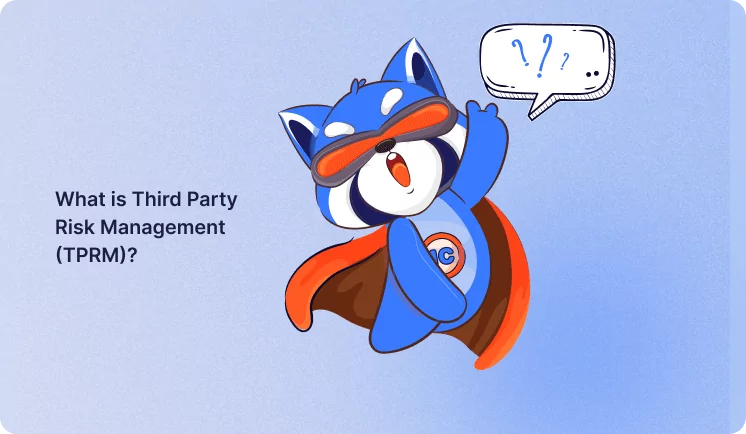
What is Third Party Risk Management (TPRM)?
It’s essential to know what third party risk management (TPRM) tools do in today’s age of increasing cybersecurity risks…
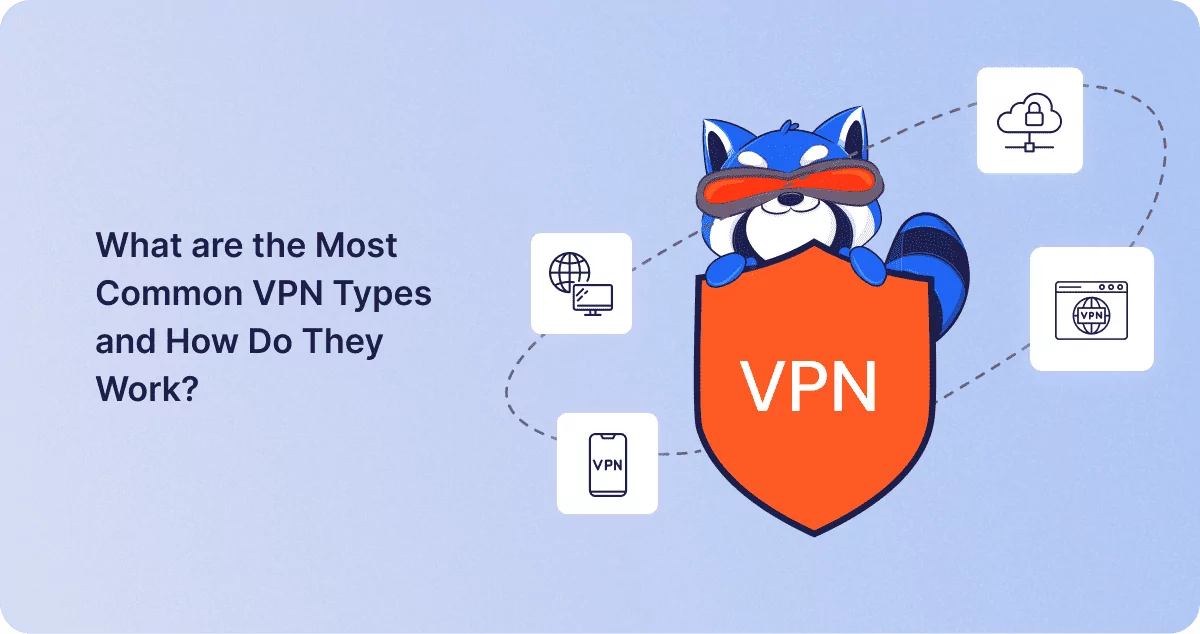
What are the Most Common VPN Types and How Do They Work?
In the digital age, Virtual Private Networks have quickly become the go-to tools for enhancing user privacy and protecti…
